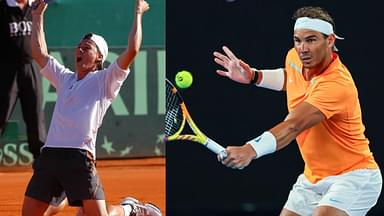The International Tennis Integrity Agency has been under scrutiny since details of Jannik Sinner’s doping incident were made public. Several individuals from the tennis community have claimed that the organization has been lenient with its ruling. The most recent one was Guillermo Coria, who spoke against the ITIA’s double standards by shedding light on a personal incident and accusing the organization of being unfair.
Coria was 19 years old when he tested positive for a banned substance. The Argentine was suspended from the ATP Tour in 2001 due to the presence of traces of nandrolone. But the then-teenager fought the suspension by claiming that he accidentally consumed the banned substance through a “contaminated vitamin supplement.”
His case is similar to Sinner’s. Both individuals claimed that the banned substance entered their bodies without their knowledge. Hence, the Argentinian legend did not appreciate the ITIA for this double standard.
“I feel I didn’t get the same treatment as him… The only thing I ask is that the treatment be equal for everyone,” Coria told CLAY.
The 42-year-old’s frustration is understandable. Sinner was declared “not guilty” of any offense and allowed to continue playing in tournaments, while Coria had to serve a seven-month suspension and forfeit large sums of prize money.
The suspension hampered Coria’s growth
Guillermo Coria was slapped with the suspension in the second year of his professional career. For a tennis player, these initial years help lay the foundation for their entire career. Instead of developing and improving himself, Coria’s mental well-being was shattered due to the ITIA’s ruling.
However, the Rufino-born player bounced back better than many expected him to. The clay-court specialist entered the top five in the ATP rankings in 2003 after being World No.97 in 2002.
In 2004, Coria went on a 26-match winning streak, reached the finals of the French Open, and also achieved a career-high ranking of #3.
Coria later witnessed a dip in his performance following the conclusion of the 2005 season. A gradual loss in form resulted in the former Junior World No.2 announcing an early retirement in 2009, at the age of 27.
Guillermo’s career could have potentially been different had the ITIA treated his 2001 nandrolone case in a similar fashion as they have dealt with Sinner’s incident.






